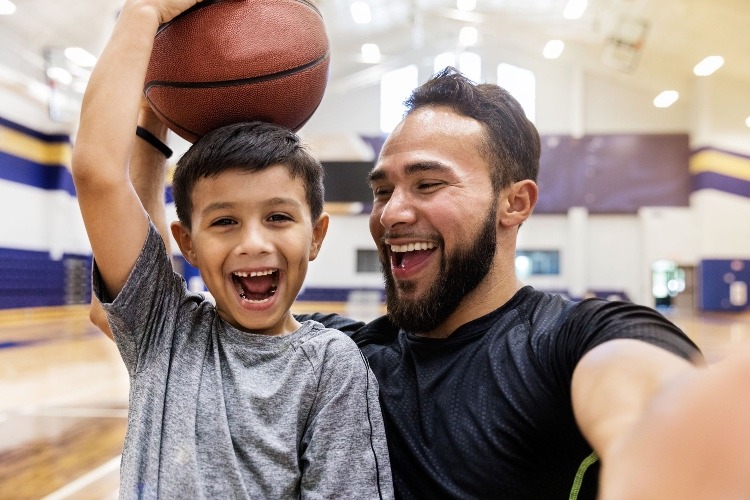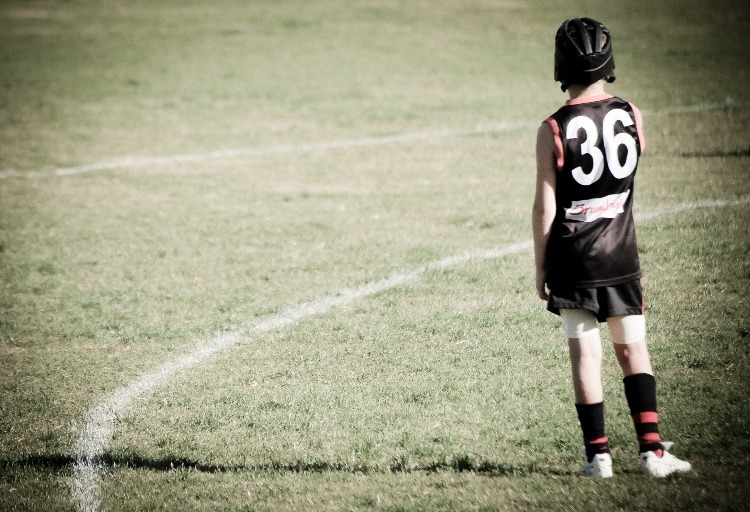Sports have always had the power to shape and to enhance a person’s character as well as developing independence. However, the focus of today’s story will mostly be on a problem that has long been present in the sports culture, the interaction between parents and their children in the world of sports. This connection can be constructive and uplifting or it can be destructive and based on fear and control.
Sports are frequently competitive, and that competition often includes an element of emotional exhaustion that start to show on the child. The competition may turn a healthy sports environment into a toxic one where children feel an unhealthy need to win to please their parents.

To get a better insight, we spoke with Dr. Nour Osama, a behavior modification specialist who wrote a number of books including “Mental Exercises,” “Behavioral Capsules,” and “My Sons, My Grandchildren, and My Precious Soul.”
Pitfalls Parents fall into
“One of the things that should help kids behave better is sports. However, we frequently present sports to our kids as a game they must win because losing is unacceptable.”
This idea, according to Osama, ruins the children’s personalities and reduces their self-confidence. We frequently overhear parents telling their kids, “If you lose your match, we’ll get furious with you.” Already in this line, the idea of unconditional love is violated, and a connection is made between success and parents’ love for their kids. Then Osama claimed that “you should do your best from the start and don’t think of the outcome” is a much more constructive instruction to give your children as they approach a competition. As soon as the child starts to focus on their performance rather than the outcome, all pressure is removed from them.
Ways to build up their confidence
Osama highlighted how crucial it is to let your kids determine their own plans and objectives. They might use this as a time to think about and pursue their goals. Children will be more committed to reaching their goals than their parents’ goals if they do this. What happens next after they’ve set their goals? Finding a purpose, on the other hand, will keep them motivated and committed to the sport without suffering from emotional exhaustion.
Is your child’s purpose more about making you happy as a parent than it is about pushing themselves to be the best version of themselves? Osama asserted that the response to that question is what sets successful and independent athletes apart from those who are coerced into participating in a sport simply for parental approval.
What can they learn from sports other than the outcome?
Children frequently pick up a few important lessons once parents decide to stop worrying about the outcome and focus more on their children’s performances and their character development. Children can benefit from many skills like commitment and mental toughness throughout their lives. A crucial life talent is tenacity, which is the capacity to fail, recover from the setback, and continue forward. Learning that failure is not the end but rather a necessary component of learning has far-reaching effects on our sense of self-worth, our capacity for resilience, and our mental agility. As we develop into adults, these abilities will be essential for overcoming obstacles and thriving in the face of adversities.

Osama advices parents not to tie their love for their children to how many victories they have as it is extremely harmful and causes their children to lose confidence. Therefore, parents can always keep in mind that sports teach more valuable life skills than only wins and losses, and that positive reinforcement is much more helpful than negative reinforcement.




